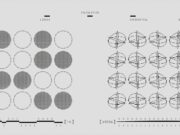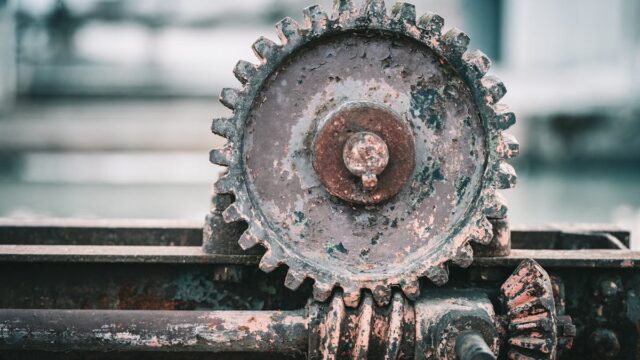What is Forensic Engineering in Mechanical Design?
Forensic engineering mechanical involves investigating the causes of mechanical failures or accidents. These investigations help determine whether a failure occurred due to poor design, manufacturing defects, or external factors. Forensic engineers use a combination of science, engineering principles, and investigative techniques to analyze these failures. Their expertise is crucial in identifying faults and ensuring safety in mechanical systems.
In the world of mechanical engineering forensics, engineers focus on understanding the mechanics behind failures, ensuring that they are properly addressed. This field blends engineering analysis, investigative methods, and practical solutions to prevent future incidents.
The Role of Forensic Mechanical Engineers in Investigations
Forensic mechanical engineers are experts in identifying the root cause of mechanical failures. They work with law enforcement, manufacturers, and legal professionals to understand why a mechanical failure occurred. By analyzing the mechanical components involved, they can determine if poor design, faulty materials, or improper use caused the failure.
In many cases, forensic engineers serve as expert witnesses, offering their testimony in legal cases. Their findings can help determine liability in accidents, product failures, or workplace injuries.
Mechanical Failure Analysis: Understanding the Causes
Common Causes of Mechanical Failures
Mechanical failures can occur for several reasons. Common causes include design flaws, material defects, and improper maintenance. Forensic engineers often find that a combination of these factors leads to a failure. Understanding these causes is vital for preventing future occurrences.
- Design Flaws: When a product’s design is inadequate, it can lead to failure under normal use. This could be due to an improper material choice or poor structural design.
- Material Defects: Faulty materials are a significant contributor to mechanical failures. Engineers must evaluate the integrity of the materials used in a product to ensure they meet required standards.
- Improper Maintenance: Lack of regular maintenance can cause mechanical systems to fail. Components that are not maintained or replaced in time can lead to system breakdowns.
How Mechanical Integrity Assessment Helps in Investigations
Mechanical integrity assessment plays a crucial role in forensic investigations. Engineers assess the mechanical properties of components, such as strength, durability, and fatigue resistance. This assessment helps to understand whether the failure was due to material fatigue, poor construction, or other issues.
The process involves testing components under various conditions to determine their behavior. These tests can include stress tests, fatigue tests, and material analysis. Through these evaluations, forensic engineers identify the key factors that contributed to the failure.
Root Cause Analysis in Forensic Engineering
Methods of Root Cause Analysis for Mechanical Failures
Root cause analysis is the systematic process of identifying the underlying cause of a failure. In forensic engineering, this analysis is crucial in determining whether the failure was due to design, materials, or operational issues.
Several methods are employed during root cause analysis, including:
- Fishbone Diagrams: These diagrams help engineers visually organize potential causes of the failure.
- 5 Whys Technique: By repeatedly asking “why” a failure occurred, engineers can trace the root cause.
- Failure Mode and Effect Analysis (FMEA): This method examines all potential failure modes and their consequences, helping to prioritize investigation areas.
Forensic Engineering Services: How Experts Investigate Mechanical Issues
The Process of Forensic Mechanical Testing
Forensic mechanical testing is essential for understanding why a failure occurred. Forensic engineers conduct tests to evaluate the strength, resilience, and functionality of mechanical components. The goal is to simulate the conditions under which the failure occurred to determine if the materials or design were to blame.
Some common tests used in forensic engineering include:
- Tensile Testing: Measures a material’s strength under tension.
- Impact Testing: Assesses how materials behave when subjected to sudden forces.
- Fatigue Testing: Evaluates how materials withstand repeated loading and unloading.
Role of Forensic Engineers as Expert Witnesses in Legal Cases
In many cases, forensic engineers are called upon to serve as expert witnesses in legal proceedings. Their expertise is crucial in explaining the cause of failures and helping determine liability. Engineers are often asked to testify about the conditions that led to mechanical failures, offering insight into how such incidents could have been avoided.
Their testimony can help clarify complex engineering concepts for judges and juries, ultimately influencing the outcome of legal cases.
Understanding Mechanical System Failures
Investigating Mechanical System Failures in Real-World Scenarios
Mechanical system failures often have severe consequences. When a mechanical system breaks down, it can result in accidents, property damage, or even fatalities. Forensic engineers investigate these failures by analyzing the system’s components, usage history, and maintenance records.
In a real-world scenario, engineers would evaluate a piece of equipment—such as a malfunctioning elevator, car engine, or pressure vessel—by examining how the system failed and what led to the breakdown. They would test parts of the system, interview witnesses, and analyze relevant data.
How Engineering Failure Investigation Techniques Identify Issues
Engineering failure investigation techniques help forensic engineers determine the precise cause of a mechanical failure. Some of the most effective techniques include:
- Visual Inspections: Engineers perform thorough inspections of the broken components to check for cracks, corrosion, or other signs of wear.
- Non-Destructive Testing: Techniques such as ultrasonic testing and x-ray inspections help identify internal damage without causing further harm to the components.
- Simulation and Modeling: Engineers may use computer simulations to replicate the conditions that led to the failure, helping them identify weaknesses in the system.
How Forensic Engineering Helps in Accident Investigation
Engineering Forensics in Accident Investigations
Engineering forensics plays a vital role in accident investigations. Mechanical failures can lead to accidents in various industries, from automotive to construction. Forensic engineers analyze accident sites to determine whether a mechanical failure was the cause of the incident. They examine vehicles, machinery, or structures involved in accidents to uncover hidden issues.
By conducting a thorough accident investigation, forensic engineers can provide valuable insights into the cause of the incident, helping to prevent similar accidents in the future.
Mechanical Design Defects: How Forensic Engineers Diagnose Issues
Case Studies of Mechanical Design Defects Identified Through Forensics
Mechanical design defects are another significant cause of failure in mechanical systems. Forensic engineers often uncover these defects during their investigations. A design flaw might result from improper calculations, inadequate material selection, or errors in the manufacturing process.
For example, a forensic investigation might reveal that a poorly designed part in a car’s braking system led to a catastrophic failure. In such cases, forensic engineers examine the original design and identify where the flaw occurred.
Frequently Asked Questions about Forensic Engineering Mechanical
1. What is forensic engineering in mechanical design?
Forensic engineering mechanical is the application of engineering principles to investigate and analyze mechanical failures or accidents. Engineers determine the root cause of the failure, whether it’s a design flaw, material defect, or operational issue.
2. How do forensic engineers analyze mechanical failures?
Forensic engineers use a variety of techniques, including root cause analysis, mechanical integrity assessment, and forensic mechanical testing. They examine components, conduct tests, and recreate the conditions of the failure to understand its cause.
3. What role do forensic engineers play in accident investigations?
Forensic engineers are essential in accident investigations. They analyze the mechanical systems involved, identify failures, and provide expert testimony in legal cases. Their findings help determine liability and prevent similar accidents in the future.
4. Can design flaws lead to mechanical system failures?
Yes, design flaws are a common cause of mechanical system failures. If a system is not designed to handle certain stresses or conditions, it can fail under normal usage. Forensic engineers examine designs to identify potential flaws and recommend improvements.























